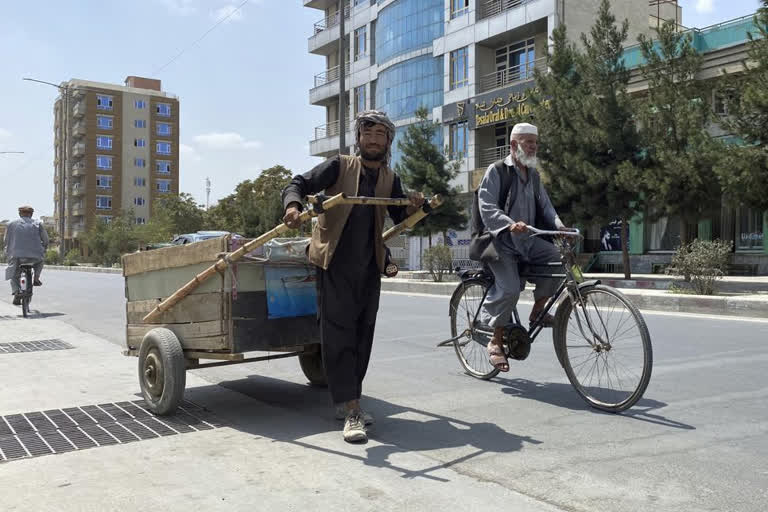Kabul:The United Nations' stockpiles of food in Afghanistan could run out this month, a senior official warned on Wednesday, threatening to add a hunger crisis to the challenges facing the country's new Taliban rulers as they try to restore stability after decades of war. About one third of the country's population of 38 million doesn't know if they will have a meal every day, according to Ramiz Alakbarov, the UN's humanitarian chief in Afghanistan.
The UN's World Food Program has brought in food and distributed it to tens of thousands of people in recent weeks, but with winter approaching and a drought ongoing, at least USD 200 million is needed urgently to be able to continue to feed the most vulnerable Afghans, he said. By the end of September, the stocks which the World Food Program has in the country will be out, Alakbarov told reporters at a virtual news conference. We will not be able to provide those essential food items because we'll be out of stocks.
Earlier, UN officials said that of the USD 1.3 billion needed for overall aid efforts, only 39 per cent has been received. The Taliban, who seized control of the country ahead of the withdrawal of American forces this week, now must govern a nation that relies heavily on international aid and is in the midst of a worsening economic crisis. In addition to the concerns about food supplies, civil servants haven't been paid in months and the local currency is losing value. Most of Afghanistan's foreign reserves are held abroad and currently frozen. Khalid Payenda, Afghanistan's former acting finance minister, on Wednesday detailed a country existing in a dangerously fragile state.
Speaking at Georgetown University in Washington, Payenda said the Afghan currency had yet to crash because money exchanges had been shuttered. But its value could plunge by more than 100 per cent, said Payenda, who described former Afghan President Ashraf Ghani as withdrawn and paranoid ahead of the Taliban takeover. I think the war had a toll on his psyche and he saw everything with suspicion, Payenda said. Part of the chaos reflects the speed at which the Taliban took control of the country, with Payenda saying he thought the prior government could have been sustained for two or three more years because of commitments by international donors.
Also read:Biden defends departure from ‘forever war,’ praises airlift
I did not expect it to be this quickly, Payenda said. Nobody actually did. Mohammad Sharif, a shopkeeper in the capital of Kabul, said shops and markets there have supplies, but a major concern is rising food prices. If the situation continues like this and there is no government to control the prices, that will cause so many problems for local people, he said. In the wake of the US pullout, many Afghans are anxiously waiting to see how the Taliban will rule. When they were last in power, before being driven out by the US-led invasion in 2001, they imposed draconian restrictions, refusing to allow girls to go to school, largely confining women to their homes and banning television, music and even photography.
